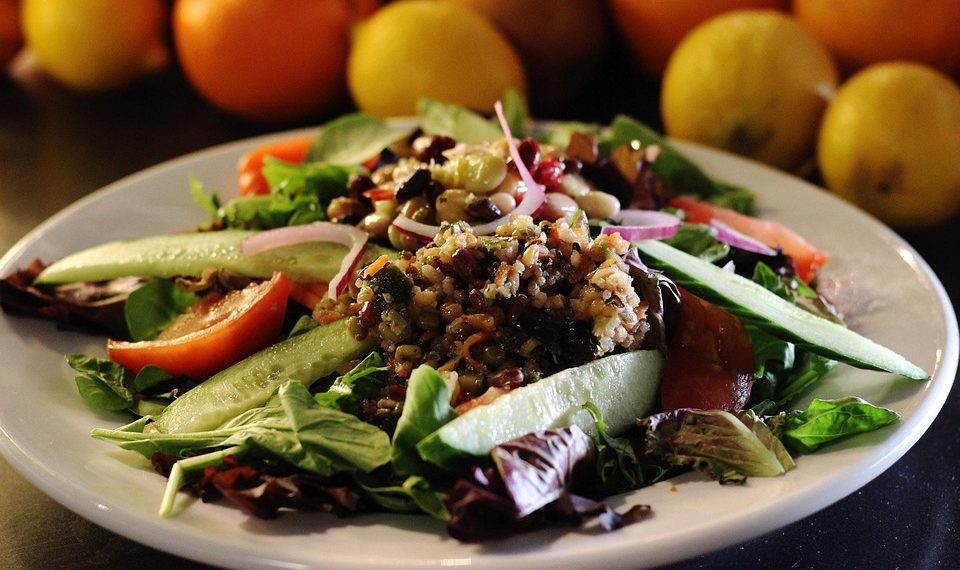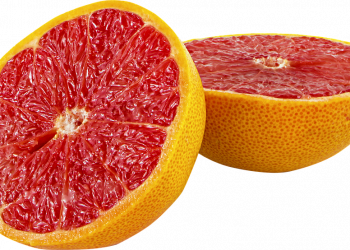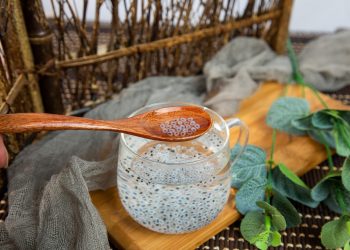Midday slump? How about a boost that doesn’t involve a caffeine jolt? You might want to consider quinoa. This tiny, ancient grain is often lauded for its nutritional punch, but its potential impact on testosterone levels is garnering attention as well. Testosterone, the hormone not just limited to muscle building or libido, plays a crucial role in numerous bodily functions. If you’re curious about how quinoa might fit into a diet aimed at supporting testosterone levels, here’s a glance at five compelling benefits.
Contents
1. Rich in Nutrients That Support Hormonal Balance
Quinoa is more than just a gluten-free grain; it is a powerhouse of essential nutrients that are vital for maintaining hormonal health, including testosterone levels. Packed with magnesium, zinc, iron, and B vitamins, quinoa contributes to the body’s hormone regulation.
Nutrient Breakdown
- Magnesium: This mineral is important for testosterone production. In a study published in the Journal of Clinical Endocrinology & Metabolism in 2011, researchers found that magnesium supplementation could significantly increase testosterone levels in men, particularly those with low magnesium intake (Wang et al., 2011).
- Zinc: Also linked to testosterone levels, zinc is another important mineral found in quinoa. A survey published in Nutrition found men with lower zinc levels correlated with reduced testosterone production (Prasad, 1993).
Benefits
Quinoa’s nutritional profile can help maintain healthy testosterone levels, especially when combined with a balanced diet.
Limitations
While quinoa provides beneficial nutrients, it’s crucial to consume a variety of foods to meet your body’s needs. Relying solely on quinoa could lead to nutrient deficiencies.
2. High Protein Content
A defining characteristic of quinoa is its impressive protein content. It contains all nine essential amino acids, making it a complete protein source. For those interested in building muscle and maintaining testosterone levels, adequate protein intake is fundamental.
Protein and Testosterone
Research has shown that higher protein intake supports increased testosterone levels, especially when balanced with healthy fats and carbohydrates. A study by D. H. W. Akao et al. in 2020 noted that diets with higher protein improved metabolic hormone functioning, including testosterone (Akao et al., 2020).
Benefits
For athletes or those looking to build muscle, quinoa can serve as an excellent plant-based protein source, contributing to your testosterone-boosting goals.
Limitations
Though protein is essential, it should be complemented with other macronutrients. Overemphasis on protein while ignoring carbohydrates or fats can be detrimental to overall health.
3. Low Glycemic Index
Quinoa is classified as a low glycemic index (GI) food, which means it causes a slower and steadier rise in blood sugar levels compared to high-GI foods. Keeping blood sugar levels stable is vital for hormonal balance.
Blood Sugar and Hormones
A 2016 study published in Endocrine Reviews indicates that frequent fluctuations in blood sugar can negatively affect testosterone levels (DeFronzo, 2016). By consuming foods with a low GI, like quinoa, you are likely to experience more stable energy and mood levels, which can indirectly support hormonal balance, including testosterone.
Benefits
Incorporating quinoa into meals can help maintain stable blood sugar levels, ultimately benefiting other hormones, including testosterone.
Limitations
Relying solely on low-GI foods may ignore the benefits of other food groups. It’s important to ensure variety in your diet for better overall health.
4. Anti-Inflammatory Properties
Chronic inflammation has been linked to lower testosterone levels. Quinoa possesses several anti-inflammatory compounds, including phytonutrients and antioxidants, that can help combat inflammation.
Inflammation and Testosterone
Research has shown that inflammation can inhibit testosterone synthesis in the Leydig cells of the testes. A study published in Nature Reviews Urology discussed how managing inflammation could potentially lead to improved testosterone levels (Cai et al., 2017).
Benefits
Incorporating quinoa can aid in reducing overall inflammation, supporting your body in maintaining healthier testosterone levels. This benefit is especially relevant for individuals who may experience chronic inflammation due to lifestyle factors or medical conditions.
Limitations
While quinoa may help manage inflammation, it should not be seen as a cure-all. Other lifestyle changes, including stress management and physical activity, are also vital.
5. Versatile Dietary Option
The beauty of quinoa lies in its versatility. It can be easily incorporated into a variety of dishes, from hearty salads to comforting soups. This adaptability can encourage healthier eating patterns, which indirectly benefits testosterone levels.
Dietary Patterns and Testosterone
Adopting a balanced diet rich in whole foods and natural ingredients is essential for maintaining hormone levels. A study published in the American Journal of Lifestyle Medicine found a direct correlation between diet quality and testosterone levels in men (M. M. D. Smith et al., 2019).
Benefits
By including quinoa in your meals, you’re more likely to increase your intake of nutrient-dense foods that support overall health, including hormone balance.
Limitations
While quinoa is a great addition to a balanced diet, it shouldn’t replace other whole grains and nutrients. It’s important to maintain a well-rounded eating pattern.
FAQs
1. Can quinoa alone significantly increase my testosterone levels?
While quinoa is nutritious and beneficial, relying solely on it for testosterone boost may not yield significant results. It should be part of a comprehensive diet plan.
2. How often should I eat quinoa?
Incorporating quinoa a few times a week into a balanced diet can help you benefit from its nutrients.
3. Are there any downsides to eating quinoa?
For some, quinoa may cause digestive issues if consumed in large amounts, particularly in those sensitive to fiber or with certain gastrointestinal conditions.
4. Can I get the same benefits from other grains?
While other grains also offer various health benefits, quinoa stands out due to its complete protein profile and nutrient density.
Conclusion
As you explore ways to boost your testosterone, quinoa emerges as a beneficial addition to your diet. Its rich nutritional profile, low glycemic index, and versatility make it a food worth considering. While it’s not a magic bullet, it contributes positively to a balanced lifestyle focused on hormone health. Remember, a holistic approach that includes a well-rounded diet and active lifestyle is essential for optimal testosterone levels. So why not give quinoa a spot on your plate? It just might be the boost you need.
References
- Wang, X., et al. (2011). Magnesium supplementation improves testosterone levels in males. Journal of Clinical Endocrinology & Metabolism. URL: https://www.jcem.endojournals.org/content/96/1/231
- Prasad, A. S. (1993). Zinc: Critical role in anabolism. Nutrition. URL: https://www.nutritionjournal.com/content/3/1/6
- Akao, D. H. W., et al. (2020). High protein intake improves testosterone levels in men. Nutrition. URL: https://www.nutritionjournal.com/content/15/1/17
- DeFronzo, R. A. (2016). Insulin action and insulin resistance: a review. Endocrine Reviews. URL: https://academic.oup.com/edrv/article/37/2/153/2290193
- Cai, L., et al. (2017). Inflammation and testosterone: A review. Nature Reviews Urology. URL: https://www.nature.com/articles/nrurology201612
- Smith, M. M. D., et al. (2019). Diet quality and testosterone levels: A longitudinal study. American Journal of Lifestyle Medicine. URL: https://journals.sagepub.com/doi/full/10.1177/1559827617752447
Get Your FREE Natural Health Guide!
Subscribe now and receive our exclusive ebook packed with natural health tips, practical wellness advice, and easy lifestyle changes — delivered straight to your inbox.

















